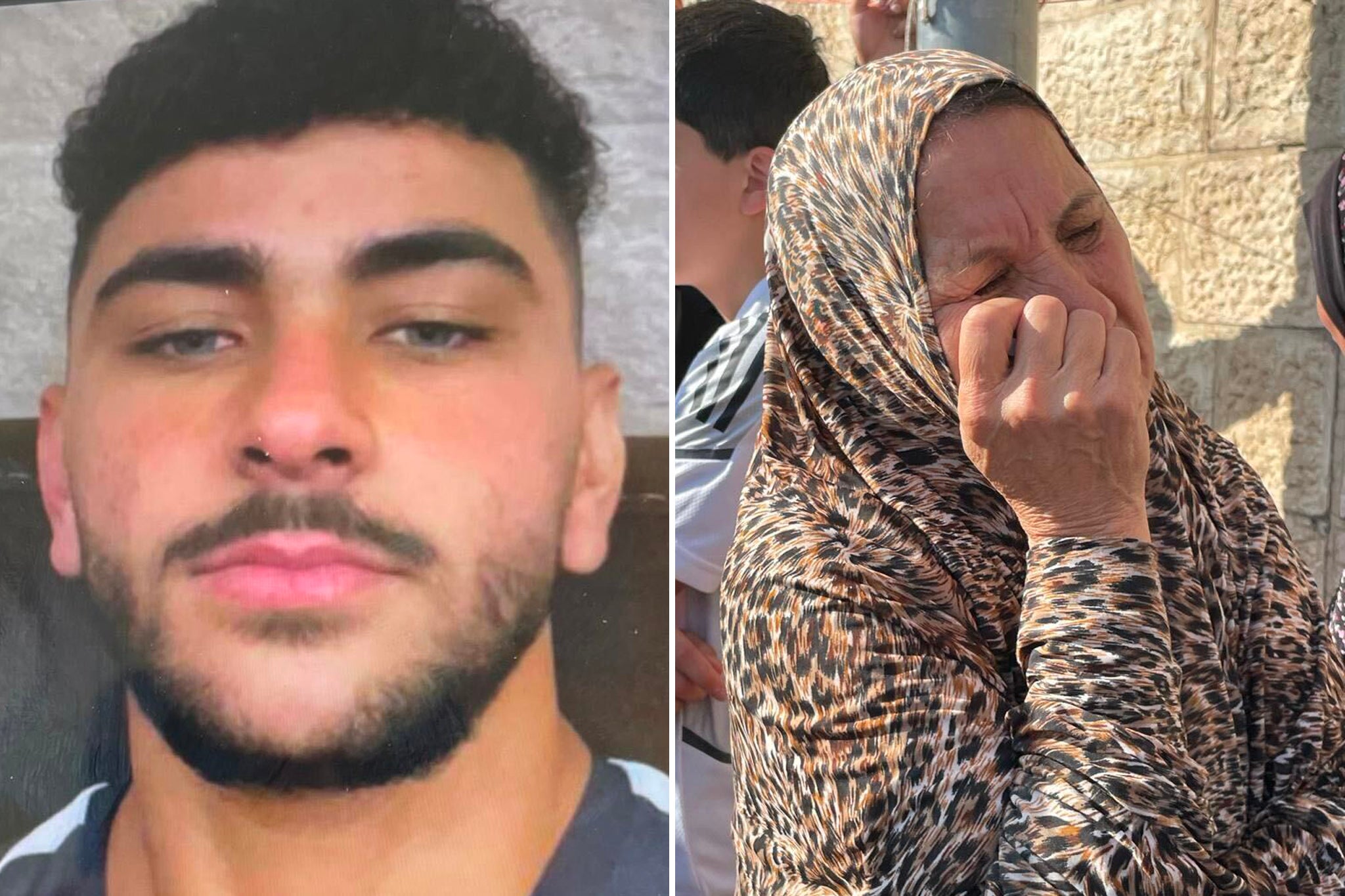A young man was shot dead in Jerusalem. His story illustrates a cycle of violence with no end in sight
Adam Nasser Abu Alwaha was killed on Monday morning, according to Israeli authorities, for stabbing a policeman. Kim Sengupta visits his family, who had their home raided in the wake of his shooting, with his mother insisting he did not belong to any militant group and had shown no particular interest in politics


It was another killing among many in a spiralling list of the dead, reflecting the rage and retribution which is enmeshing Israelis and Palestinians in this cycle of violence.
On a sunny, and seemingly relaxed, morning in east Jerusalem, a teenage youth was walking by a security point when something happened. Israeli authorities say he produced a knife, stabbed one of the policemen and began to run. He did not get far: he was shot down by three staccato bursts of semi-automatic rifle fire within a hundred yards.
The youth, 17 years old, fell just outside the entrance of St George’s Cathedral on Nablus Road, a historic street near the holy shrines of three religions. I had walked by a few minutes earlier and returned at the sound of gunfire to see the body lying there, face down on the pavement.
The area was soon swarming with soldiers and police, shouting, guns pointing. It has been just over three weeks since the spectacular raid by Hamas fighters who had crossed over the border from Gaza to massacre 1,400 people and take around 230 hostages, the situation remains tense and volatile.
The policeman attacked had been seriously injured, the Israeli authorities said. An ambulance arrived to take him to hospital. The dead body was put in a silver thermal covering, dragged to the middle of the road, body-bagged, and driven away after being slung into the back of an armoured carrier.

Police forensic tapes were removed after a while, the security personnel roared off in their cars. The doorman at St George’s double-locked the gates, just as he had done after the archbishop of Canterbury had left after preaching the sermon the previous Sunday during a visit to the country. Justin Welby had called for an end to the endless violence; the need to replace bitterness and anger with dialogue and reconciliation.
A pool of dark blood from outside the gates ran down the street, all that was left of what had just happened. A few people walking by stopped to look before stepping over to go on their way.
A series of loud thunderclaps overhead were heard a little later, the Iron Dome defence system was intercepting Hamas missiles, a reminder of the ongoing war in which more than 8,000 people have been killed in Gaza.
But who was the youth who had allegedly carried out the knifing, knowing almost certainly that he would pay for that with his life?
Adam Nasser Abu Alwaha was born in Jerusalem on 15 February 2006. He had a Jordanian passport. He worked for a company installing windows run by his older brother Ahmed. He enjoyed life, going around with his friends, did not belong to any militant group, and had shown no particular interest in politics, his family insist.
Within 20 minutes of the attack, Israeli police and soldiers arrived at the Alwaha family home on the Mount of Olives. They arrested the dead youth’s father, Nasser, and his sisters Fatima and Asil, both in their early twenties.

The inside of the house on Pentecostal Street, next to the Church of Pentecost, with views across the Kidron Valley towards Temple Mount, had been wrecked in the search by the security forces. The family claim that money and valuables have been stolen. There is no way of knowing if this is true.
Adam Nasser’s mother, Maryam was in tears. “They smashed down the door, and look what they have done to our home” she says pointing at the damage. “They have shot my son, they took away my daughters, they took away my husband, he is not well, he cannot walk, what will happen to him? What will happen to my son?”
Nasser Alwaha has difficulty walking due to an illness since birth. The Israeli soldiers, say the family, told Maryam that her son was injured, but still alive.
“The Israelis know there will be an explosion here when it becomes known that they have killed Adam. They will be preparing for trouble now”, says Iyad, a cousin. “We have not told Adam’s mother that he is dead. We’ll wait until they release Nasser and the girls, or until we know a bit more about what has happened to them. She is so upset already, as you can see, it’ll be too much for her to take.”
Homes of those designated as carrying out terrorist attacks are sometimes demolished by Israeli authorities. The Alwaha family say they have been warned that may happen to their house.
Hosam, another cousin, fears it may well happen. “We don’t believe Adam made this attack, he is not like that, he has never been involved in anything like this. They killed him like they kill so many of our young men – because they can get away with it,” he says.
“We think they’ll use this as an excuse to destroy this house. This is the way they are taking over our land, they want to drive us all out. But this family has been on the Mount of Olives for 700 years. We are not going to just give up the homes of our ancestors, our history and just go away.”
A crowd had begun to gather outside the house. There were cries of defiance, vows of avenging Adam. “He has gone, but others will take his place”, said 19-year-old Samir. “This fight will not end.”






Join our commenting forum
Join thought-provoking conversations, follow other Independent readers and see their replies
Comments